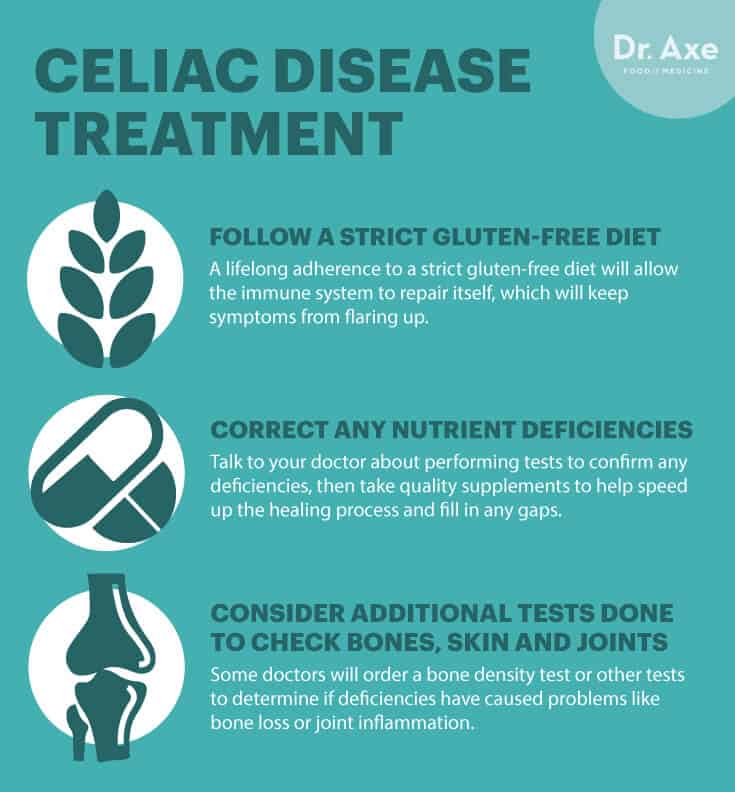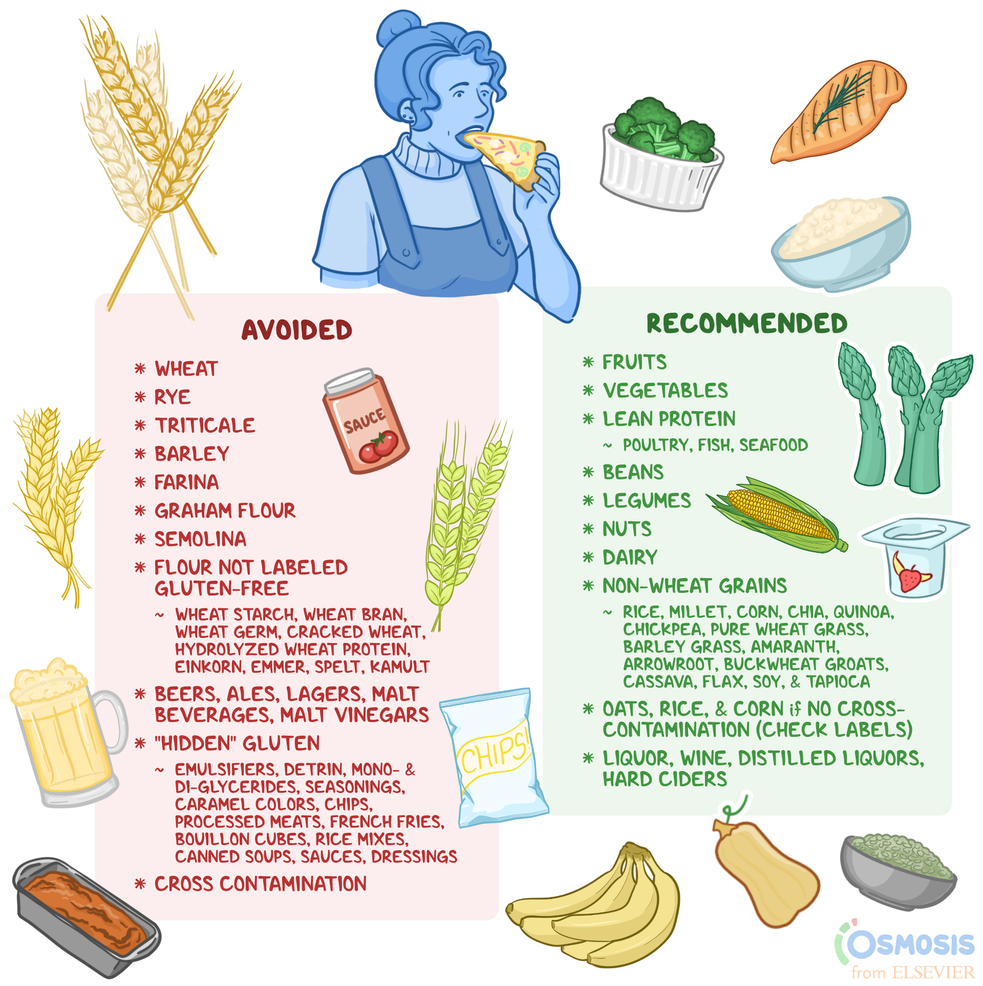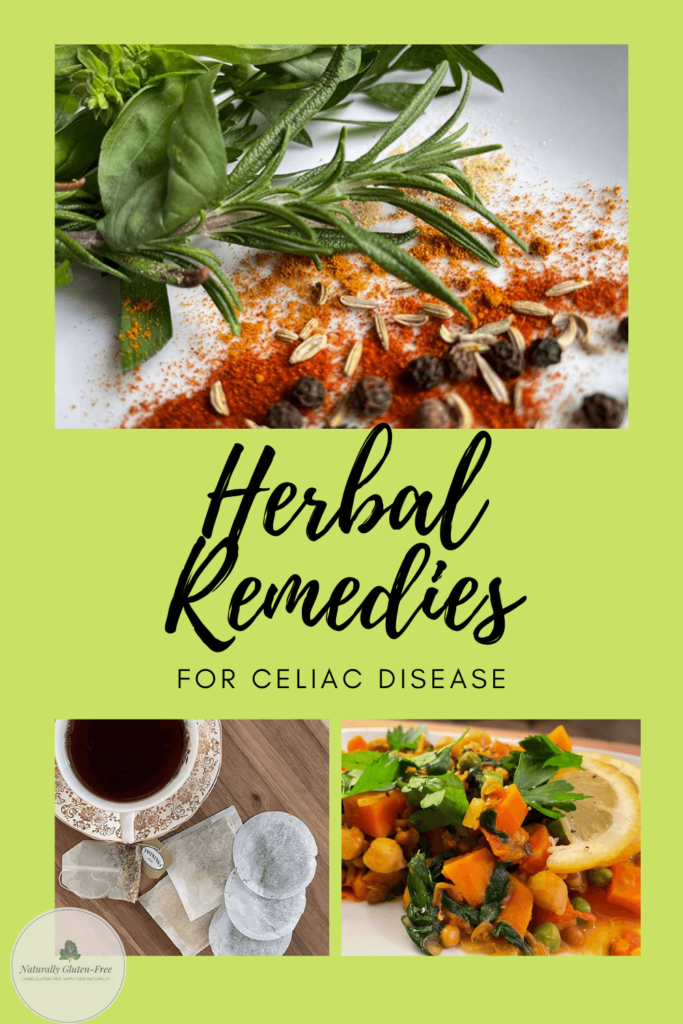Living with celiac disease can be challenging, but there is hope! In this article, you will discover a natural remedy that could help alleviate the symptoms and improve your quality of life. Celiac disease is a serious autoimmune disorder that affects the small intestine, causing an adverse reaction to gluten. It can lead to symptoms such as abdominal pain, diarrhea, fatigue, and even nutrient deficiencies. However, by incorporating this natural remedy into your daily routine, you may find relief and regain control over your health. So, let’s dive in and explore this incredible solution for celiac disease!

Understanding Celiac Disease
What is Celiac Disease?
Celiac Disease is an autoimmune disorder that affects the small intestine. It is triggered by the ingestion of gluten, a protein found in wheat, barley, and rye. When someone with Celiac Disease consumes gluten, their immune system reacts by damaging the lining of the small intestine. This ultimately impairs the body’s ability to absorb nutrients from food.
Causes of Celiac Disease
The exact cause of Celiac Disease is unknown, but research suggests that it is a combination of genetic factors and environmental triggers. If you have a family member with Celiac Disease, you are more likely to develop the condition yourself. It is also believed that certain infections or stressful events may activate Celiac Disease in individuals who are genetically predisposed.
Symptoms of Celiac Disease
The symptoms of Celiac Disease can vary from person to person, making it challenging to diagnose. Some common symptoms include abdominal pain, bloating, diarrhea, weight loss, fatigue, and malnutrition. It is important to note that not everyone with Celiac Disease experiences digestive symptoms. Some individuals may present with symptoms outside of the gastrointestinal system, such as joint pain, skin rashes, or neurological issues.
Diagnosing Celiac Disease
If you suspect you have Celiac Disease, it is crucial to seek out a medical professional for a proper diagnosis. The process typically involves blood tests to check for antibodies associated with Celiac Disease. If the blood tests are positive, your doctor may recommend a small intestine biopsy to confirm the diagnosis. It is important not to start a gluten-free diet before being tested, as it may lead to false negative results.
Importance of Proper Diagnosis
Why Proper Diagnosis is Essential
Obtaining a proper diagnosis of Celiac Disease is crucial for several reasons. Firstly, it allows individuals to receive the necessary medical monitoring and support. Celiac Disease can lead to various complications if left untreated, such as osteoporosis, anemia, infertility, and an increased risk of certain cancers. Secondly, a proper diagnosis helps individuals adhere to a gluten-free lifestyle, which is the primary treatment for Celiac Disease. Lastly, a confirmed diagnosis allows individuals to seek appropriate accommodations and support in educational institutions and workplaces.
Distinguishing Celiac Disease from Other Conditions
Celiac Disease can often be mistaken for other digestive disorders, such as irritable bowel syndrome (IBS) or Crohn’s disease. However, it is important to differentiate between these conditions, as the treatment approaches vary significantly. Proper diagnosis ensures that individuals receive the most suitable treatment and avoid unnecessary medications or interventions.
Potential Consequences of Misdiagnosis
Misdiagnosis or delayed diagnosis of Celiac Disease can have serious consequences. If Celiac Disease goes untreated, it can lead to long-term complications and negatively impact one’s quality of life. Additionally, misdiagnosed individuals may continue to consume gluten, further damaging their small intestine and exacerbating their symptoms.
Seeking Professional Help
If you suspect you have Celiac Disease or are experiencing symptoms, it is essential to seek professional help. Consult with a gastroenterologist or a medical professional experienced in diagnosing and managing Celiac Disease. They can guide you through the diagnostic process, provide appropriate treatment recommendations, and offer ongoing support to help you manage your condition effectively.
Gluten-Free Diet as the Primary Treatment
Understanding Gluten
Gluten is a protein found in wheat, barley, and rye. It gives dough its elasticity and helps food maintain its shape. In individuals with Celiac Disease, the immune system mistakenly recognizes gluten as a threat and reacts by damaging the lining of the small intestine. The primary treatment for Celiac Disease is the complete elimination of gluten from the diet.
Adopting a Gluten-Free Lifestyle
Adopting a gluten-free lifestyle involves more than just avoiding bread, pasta, and baked goods. Gluten can be found in a wide range of foods, including sauces, condiments, soups, and processed meats. It is essential to read food labels carefully, seek out gluten-free alternatives, and ensure that cross-contamination does not occur during food preparation.
Challenges of Maintaining a Gluten-Free Diet
Maintaining a strict gluten-free diet can be challenging, especially when dining out or attending social gatherings. Cross-contamination can occur in kitchens or restaurants that also handle gluten-containing products. Additionally, hidden sources of gluten can be present in various food products. It is crucial to educate yourself about safe food choices, be diligent in food preparation, and communicate your dietary needs to others.
Tips for Successfully Managing a Gluten-Free Diet
Managing a gluten-free diet can be overwhelming initially, but with time and practice, it becomes easier. Here are some tips to help you succeed:
- Educate yourself: Learn about gluten-free alternatives and hidden sources of gluten to make informed food choices.
- Plan ahead: Prepare meals at home and carry gluten-free snacks when you are on the go.
- Seek support: Join local or online support groups to connect with others who are following a gluten-free diet.
- Communicate your needs: Inform restaurants, friends, and family members about your dietary restrictions to ensure a safe dining experience.
- Experiment with recipes: Get creative in the kitchen and explore gluten-free recipes that are both delicious and nutritious.
Remember, adopting a gluten-free diet is a lifelong commitment, but it is key to managing Celiac Disease effectively and improving overall health and well-being.
Role of Natural Remedies
Supplementing a Gluten-Free Diet
While a gluten-free diet is the cornerstone of managing Celiac Disease, some natural remedies can complement the treatment. These remedies aim to support gut healing, reduce inflammation, and boost the immune system. However, it is essential to consult with a healthcare professional before incorporating any natural remedies into your treatment plan.
Reducing Inflammation
Inflammation in the gut is a hallmark of Celiac Disease. Certain natural remedies, such as omega-3 fatty acids found in fish oil, have anti-inflammatory properties that may help alleviate gut inflammation. Discussing the use of these remedies with your healthcare provider can help determine the appropriate dosage and assess any potential risks or interactions with your current medications.
Supporting Gut Health
Maintaining a healthy gut is crucial for individuals with Celiac Disease. Natural remedies like probiotics can help restore and maintain a healthy balance of gut bacteria. Probiotics are beneficial bacteria that can support digestion, strengthen the immune system, and improve overall gut health. It is important to choose a probiotic that is specifically formulated for individuals with Celiac Disease and consult with your healthcare provider to determine the best strains and dosage for your needs.
Boosting Immune System
The immune system plays a significant role in Celiac Disease, as it is responsible for the body’s reaction to gluten. Certain natural remedies, such as vitamin C, vitamin D, and zinc, can help support and strengthen the immune system. However, it is important to obtain these nutrients from a balanced diet or under the guidance of a healthcare professional to ensure appropriate dosages and avoid potential interactions with other medications.

Herbal Remedies for Celiac Disease
Marshmallow Root
Marshmallow root has been used for centuries to soothe and support the digestive system. It may help alleviate symptoms of Celiac Disease, such as bloating and inflammation. However, more research is needed to establish its effectiveness specifically for Celiac Disease. Consult with your healthcare provider before using marshmallow root as a natural remedy.
Aloe Vera
Aloe vera has anti-inflammatory properties and may be beneficial for individuals with Celiac Disease. It can help soothe the digestive system and reduce gut inflammation. However, it is important to use pure aloe vera gel or juice and consult with your healthcare provider before incorporating it into your treatment plan.
Chamomile
Chamomile is well-known for its calming and soothing effects. It may help reduce inflammation in the gut and alleviate symptoms of Celiac Disease, such as abdominal pain and cramping. Sip on chamomile tea or discuss the use of chamomile supplements with your healthcare provider.
Turmeric
Turmeric contains a compound called curcumin, which has powerful anti-inflammatory properties. It may help reduce gut inflammation and alleviate symptoms of Celiac Disease. Consider incorporating turmeric into your cooking or discussing the use of curcumin supplements with your healthcare provider.
Digestive Enzyme Supplements
Bromelain
Bromelain is an enzyme derived from pineapple that aids in the digestion of proteins. It may assist individuals with Celiac Disease in breaking down gluten and improving overall digestion. However, it is important to note that digestive enzyme supplements should not replace a gluten-free diet but rather complement it. Consult with your healthcare provider to determine the appropriate dosage and usage of bromelain.
Papain
Papain is an enzyme derived from papaya that helps break down gluten proteins. It may support individuals with Celiac Disease by improving gluten digestion. Again, it is essential to emphasize that digestive enzyme supplements should not be used as a substitute for a gluten-free diet. Consult with your healthcare provider for guidance on the appropriate usage of papain.
DPP-IV
Dipeptidyl peptidase IV (DPP-IV) is an enzyme that aids in the breakdown of gluten proteins. Some individuals with Celiac Disease may have insufficient levels of DPP-IV, leading to difficulties in digesting gluten. DPP-IV enzyme supplements can help facilitate gluten digestion and should be used in conjunction with a strict gluten-free diet. Consult with your healthcare provider to determine the appropriate dosage and usage of DPP-IV.
Benefits and Considerations
Digestive enzyme supplements can be a helpful addition to managing Celiac Disease. They may assist in breaking down gluten proteins and improving overall digestion. However, it is important to note that these supplements should not replace a gluten-free diet. Additionally, digestive enzyme supplements are not regulated by the FDA, so it is crucial to choose reputable brands and consult with your healthcare provider before incorporating them into your treatment plan.

Probiotics for Celiac Disease
Understanding Probiotics
Probiotics are live beneficial bacteria that can support gut health. They help maintain a balanced gut microbiome, aid in digestion, strengthen the immune system, and reduce inflammation. Individuals with Celiac Disease may benefit from incorporating probiotics into their treatment plan to support overall gut health and improve symptoms.
Effectiveness of Probiotics in Celiac Disease
Studies have shown that certain strains of probiotics, such as Lactobacillus and Bifidobacterium, can help alleviate symptoms and improve the quality of life in individuals with Celiac Disease. Probiotics may also enhance the healing of the intestinal lining and improve nutrient absorption. However, it is important to note that the effectiveness of probiotics can vary from person to person, and not all strains may be beneficial for everyone.
Choosing the Right Probiotic
When selecting a probiotic for Celiac Disease, it is essential to choose a product that is specifically formulated for individuals with digestive disorders. Look for probiotics that contain strains proven to be beneficial for Celiac Disease, such as Lactobacillus acidophilus, Bifidobacterium infantis, and Bifidobacterium breve. It is also important to choose probiotics that come from reputable brands and have undergone third-party testing for their potency and purity.
Probiotic-Rich Foods
In addition to taking probiotic supplements, it is beneficial to incorporate probiotic-rich foods into your diet. Foods such as yogurt, kefir, sauerkraut, and kimchi naturally contain beneficial bacteria and can contribute to a healthy gut microbiome. However, if you have lactose intolerance or other food sensitivities, it is important to choose probiotic-rich foods that align with your dietary needs.
Balancing Nutrient Deficiencies
Common Nutrient Deficiencies in Celiac Disease
Celiac Disease can lead to nutrient deficiencies due to the impaired absorption of vitamins, minerals, and other essential nutrients. Common deficiencies include iron, calcium, vitamin D, vitamin B12, folate, and zinc. Addressing these deficiencies is crucial for overall health and well-being.
Addressing Nutrient Deficiencies with Natural Remedies
Natural remedies can help address nutrient deficiencies in individuals with Celiac Disease. For example, iron deficiency anemia can be managed by incorporating iron-rich foods into the diet, such as leafy greens, lean meats, and legumes. Adequate vitamin D levels can be supported by spending time in the sun or discussing the use of vitamin D supplements with your healthcare provider. It is important to work with a healthcare professional or a registered dietitian to develop an individualized plan to address your specific nutrient deficiencies.
Vitamin and Mineral Supplements for Celiac Disease
In some cases, nutrient deficiencies in Celiac Disease may require supplementation. Supplements such as iron, calcium, vitamin D, and B vitamins can help address deficiencies and support overall health. It is crucial to consult with a healthcare professional to determine the appropriate dosage and type of supplements based on your specific needs. Regular monitoring of nutrient levels is also important to ensure optimal health.
Importance of Regular Monitoring
Regular monitoring of nutrient levels is essential for individuals with Celiac Disease. Blood tests can help identify and monitor any nutrient deficiencies and guide the appropriate treatment and supplementation. Working closely with a healthcare professional will ensure that your nutrient levels are adequately addressed and monitored over time.

Promoting Gut Healing
Glutamine
Glutamine is an amino acid that plays a crucial role in maintaining the integrity and function of the intestinal lining. It may help promote gut healing in individuals with Celiac Disease. Glutamine can be found in certain foods like chicken, fish, and eggs, or taken as a supplement under the guidance of a healthcare professional.
Omega-3 Fatty Acids
Omega-3 fatty acids, found in fatty fish like salmon and sardines, have anti-inflammatory properties and can support gut healing. They may help reduce inflammation in the gut and alleviate symptoms of Celiac Disease. Incorporating omega-3-rich foods into your diet or discussing the use of omega-3 supplements with your healthcare provider can be beneficial.
Deglycyrrhizinated Licorice (DGL)
Deglycyrrhizinated licorice (DGL) is a form of licorice root that has been processed to remove the compound responsible for side effects like high blood pressure. DGL may help soothe and support the digestive system, reducing symptoms of Celiac Disease. Consult with your healthcare provider before using DGL as a natural remedy.
Bone Broth
Bone broth is made by simmering bones, typically from chicken or beef, for an extended period. It is rich in collagen, amino acids, and minerals that can support gut healing. Drinking bone broth or incorporating it into soups and stews may help soothe the digestive system and promote gut health in individuals with Celiac Disease.
Additional Considerations
Potential Interactions and Side Effects
When using natural remedies for Celiac Disease, it is essential to be aware of potential interactions and side effects. Some herbs and supplements may interact with medications or exacerbate certain health conditions. It is crucial to consult with a healthcare professional before incorporating any natural remedies into your treatment plan, especially if you are taking medications or have underlying health conditions.
Consulting with a Healthcare Professional
Working with a healthcare professional is vital for individuals with Celiac Disease. They can provide guidance, monitor your condition, and help you navigate the treatment options, including natural remedies. A healthcare professional experienced in Celiac Disease can help ensure that your treatment plan is safe, effective, and tailored to your specific needs.
Combining Natural Remedies with Conventional Treatment
Natural remedies should not replace conventional medical treatment for Celiac Disease. They can be used as a complementary therapy to support the primary treatment, which is a gluten-free diet. It is important to discuss any natural remedies you are considering with your healthcare provider and ensure they are appropriate for your specific condition.
Continuing Medical Monitoring
Celiac Disease requires ongoing medical monitoring to assess response to treatment, identify potential complications, and ensure optimal health. Regular check-ups and blood tests can help monitor the effectiveness of your treatment plan and address any nutritional deficiencies or other concerns that may arise. It is crucial to attend scheduled appointments and communicate any new or worsening symptoms to your healthcare provider.
In conclusion, Celiac Disease is a complex condition that requires a multifaceted approach to management. A gluten-free diet is the primary treatment, but natural remedies can play a supportive role in promoting gut healing, reducing inflammation, and addressing nutrient deficiencies. However, it is important to consult with a healthcare professional before incorporating any natural remedies into your treatment plan. Working closely with a medical professional will help ensure that your treatment is safe, effective, and tailored to your specific needs. Remember, managing Celiac Disease is a lifelong commitment, but with the right support and resources, you can lead a healthy and fulfilling life.

Related Terms About Natural Remedy For Celiac Disease
Can You Get Cured From Celiac Disease, Cure For Celiac Disease In The Future, Cure For Celiac Disease Reddit, Curing Celiac Disease With Diet, Effective Remedies For Celiac Disease, How To Cure Celiac Disease, How To Help Celiac Disease, How To Help Celiac Symptoms, How To Treat Celiac Disease, How To Treat Celiac Disease Symptoms, Is Garlic Good For Celiac Disease, Remedy For Celiac Disease, Treatment For Celiac Disease Flare Up, Treatment For Celiac Disease In Adults, Treatment For Celiac Disease Rash, Treatment For Celiac Disease Symptoms, What Can Help A Celiac Attack